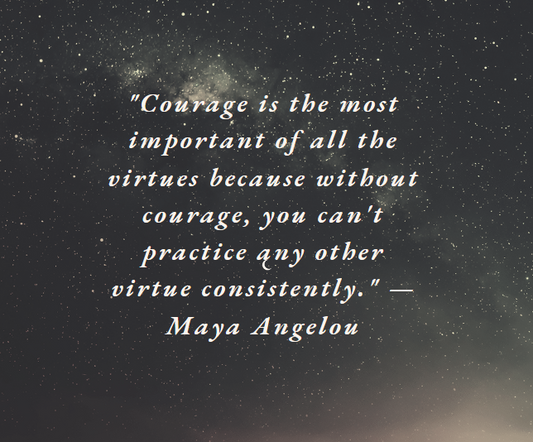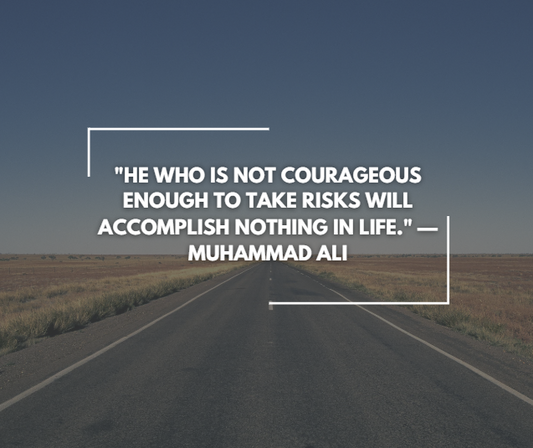Muhammad Ali’s powerful statement, “He who is not courageous enough to take risks will accomplish nothing in life,” underscores the critical role of risk-taking in achieving success and fulfillment. As a legendary boxer and cultural icon, Ali’s words resonate beyond the ring, offering valuable insights into the broader context of personal and professional growth.
The Essence of Risk-Taking
Risk-taking is a fundamental aspect of achieving significant accomplishments and realizing one's full potential. Ali’s quote highlights that avoiding risks often results in missed opportunities and stagnation. Courageously embracing risks can lead to breakthroughs and achievements that otherwise would be unattainable.
-
Embracing Uncertainty: Taking risks involves stepping into the unknown and facing uncertainty. This willingness to venture beyond the familiar can lead to discovering new possibilities and opportunities that would remain hidden if one stayed within their comfort zone.
-
Growth Through Challenge: Risks often present challenges that stimulate growth and learning. By confronting these challenges, individuals can develop new skills, gain valuable experiences, and build resilience. This process of growth is essential for achieving long-term success and fulfillment.
The Impact of Risk-Taking on Achievement
-
Personal Success: Many notable achievements throughout history have been the result of courageous risk-taking. Innovators, entrepreneurs, and leaders who have dared to challenge the status quo often achieve remarkable success. For example, Steve Jobs’ risk-taking in founding Apple and pioneering new technologies revolutionized the tech industry.
-
Professional Advancement: In professional settings, taking calculated risks can lead to significant career advancements. Whether it’s pursuing a new job opportunity, leading a groundbreaking project, or advocating for innovative ideas, those who take risks often find themselves at the forefront of progress and achievement.
Balancing Risk and Reward
-
Calculated Risks: While taking risks is essential, it’s important to approach them with careful consideration and planning. Calculated risks involve evaluating potential outcomes, preparing for possible challenges, and making informed decisions. This balance helps to maximize the likelihood of success while managing potential downsides.
-
Learning from Failure: Not every risk will result in success, but even failures offer valuable lessons. Embracing failure as part of the learning process allows individuals to refine their approaches, adapt strategies, and build greater resilience for future endeavors.
Cultivating Courage for Risk-Taking
-
Build Confidence: Cultivating confidence through small, manageable risks can help prepare for larger challenges. Gradually expanding your comfort zone and taking incremental risks builds the courage needed for more significant endeavors.
-
Seek Support: Surround yourself with supportive mentors, peers, and networks who encourage and advise you in taking risks. Their guidance and encouragement can provide valuable perspectives and bolster your confidence.
-
Focus on the Vision: Keeping a clear vision of your goals and aspirations can provide the motivation needed to take risks. A strong sense of purpose helps to navigate the uncertainties and challenges that come with risk-taking.
Muhammad Ali’s assertion that “He who is not courageous enough to take risks will accomplish nothing in life” encapsulates the essence of achieving greatness and realizing one’s potential. Risk-taking is a crucial component of personal and professional success, driving growth, innovation, and fulfillment. By embracing risks with courage and careful consideration, individuals can unlock opportunities, achieve their goals, and make a meaningful impact. Ali’s words inspire us to confront our fears, take bold steps, and pursue our dreams with determination and bravery.





